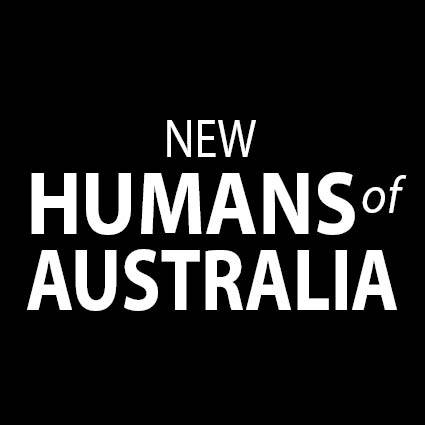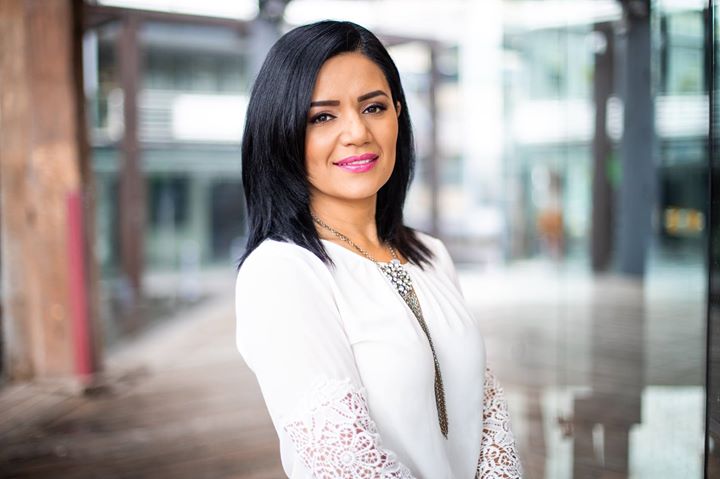My parents were open minded and educated, so I was allowed to go to school in Afghanistan, but they were just small local schools and there were maybe seven levels in the same room. Also, there was always something going on that stopped me from finishing the term. I remember when my year 4 exams were coming up, and because there was bombing everywhere, my Mum said, ‘You’re not going next week. It’s not safe.’ I was crying so much because I didn’t want to have to repeat the year. But after that there was pretty much nothing anyway, as we were always having to move houses because of the fighting in our part of Kabul.
When I was 15, we were forced to leave for Pakistan. In this time, I was sometimes separated from my parents so I was responsible for supporting my younger siblings. To make money, I worked as a beautician and sometimes as a teacher, just teaching ABC. But I still wanted to go to school, so much that I offered myself as a cleaner at one school in exchange for entry. I think they felt sorry for me, because they said, ‘It’s OK, you can come anyway.’ But in the end, there were problems because I wasn’t legally allowed to study there, so I left.
When I was 20, my three younger siblings and I were approved to come to Australia as refugees. The main reason we had come to Australia was just to be safe, but I remember when I stepped out that first day in the airport and saw all the girls with their hair nicely done, I said, ‘That’s it. I want to look like that, to be free to look like a female, rather than always having to hide my identity or hide who I really am. All I want now is to just be me, and that’s it.’
I also really wanted to try what school in Australia was like. I knew that I was an adult, but at the same time, because I had never experienced my childhood, I wanted to start again. So I kind of forced myself into the local school by saying, ‘Please take me!’ I remember the principal saying, ‘Maryam, my oldest in the school is 16, and you’re almost 21.’ And I said, ‘Look at me. I’m not even tall, and people always think I’m younger than I am! Coming here is a dream come true for me, and if you don’t give me a chance, I won’t be able to continue my education.’ Finally, he said OK, and in a matter of that 15 minutes, I set up my whole future.
So I went into year 11, with very limited English. I didn’t tell the other students that I was older than them. I didn’t even want to be 20! Sometimes I felt a bit self conscious about wearing the right uniform, and ordering the right food at the canteen, but I was pretty quickly adopted by the others. It was actually the best time of my life. Still, I feel emotional when I talk about it. I had so much potential, but it was so difficult, and I know I would have done much, much better if I had really known the language. But they didn’t give up on me, and I didn’t give up on myself, and in the end I did well and I got my certificate.
In that time, I had a few personalities I had to play. I was still responsible for my younger siblings, including financially, as I was the only one working, at a kebab shop. But I also used to write a lot – short stories and poems, just to make myself feel good. And through that, I became a co-founder of Voice of the Youth at a local community radio station, writing their Dari programs. It was there that I met the man who was to become my wonderful husband – I think he fell in love with my writing!
With that and school and work, I was very busy, but I really wanted to be distracted from the memories of the war which I was carrying. Post traumatic stress disorder is real and it stays with you for the rest of your life, as the memories are always there. Every time I open my mouth, I feel I am speaking from a place of trauma, and I sometimes feel it will never go away.
Three years later, my parents finally arrived in Australia. It was lovely – I can’t express the feeling of seeing them again. I remember my brother jumped the barrier at the airport when he saw them, and we all just ran to hug each other. We actually blocked the entrance!
Soon after, I got married, and started my Diploma of Community Services. Next, I got a job as a generalist case worker for new arrivals in Australia, which was also a kind of therapy for me, to help people who were experiencing the same thing as I had been through. After that, I took maternity leave while I had my two children, but now I’m doing a Bachelor of Community Development and working with victims of domestic violence, which is such a huge problem. Every day I have 5 or 6 clients knocking on my door, but I’m glad that I’m there.
I am also the proud founder of ‘Afghan Women on the Move’, a platform for women who are survivors of war and trauma to participate in art and fun activities outside of religious and political influences. We try to break down isolation and build a sense of belonging and resilience by facilitating encounters with women from other cultures. I love it, because I don’t have extended family here, so I have made this work my family and my community and my everything. Over time, I’ve received 5 awards for my work, which I am also proud of.
In a way, I’m glad that I’m not in Afghanistan, because I would have either been married by the age of 18 or I’d be dead. I believe that Australia is a land of opportunities, and that people who come here should work hard, as the people who came here before us have worked hard to make it the beautiful country it is today.
Maryam
Afghanistan
Arrived 1999
Photographer: Kurt Tilse www.instagram.com/kjtilse
This month, we are bringing you a series of stories commissioned by TransferWise for their incredible Faces of Australia campaign, celebrating the contributions of migrants to Australia. Find out more about this exciting project here: https://transferwise.com/community/facesofaustralia
#migrant #migration #Afghanistan #Pakistan #Australia #innovation #inspiration #strength #storiesnotstereotypes #TransferWise #moneywithoutborders #FacesofAustralia

